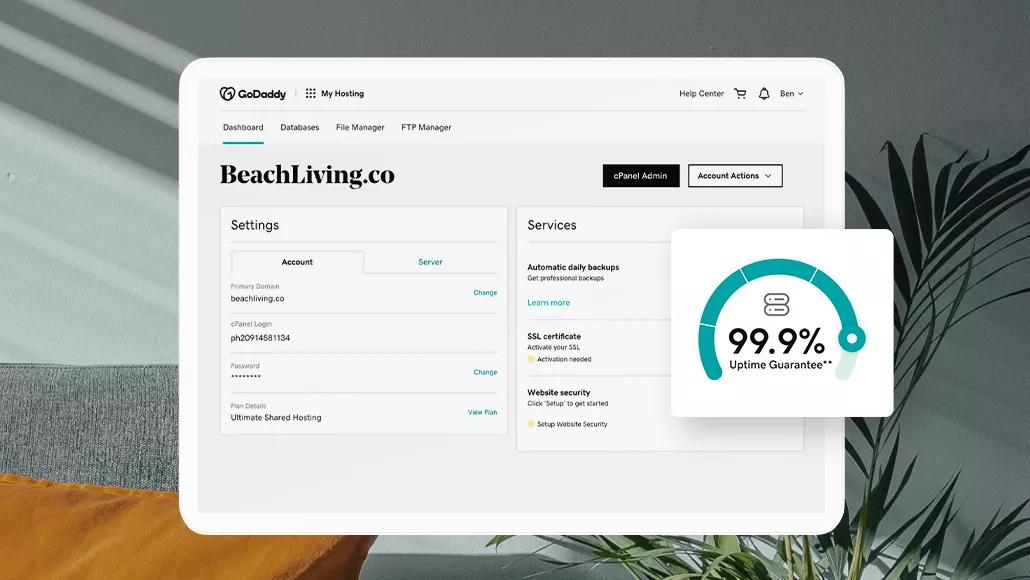Finding the right web hosting company can be tricky. Many options exist, each offering different features and prices.
Selecting the best web hosting company is crucial for your website’s success. A reliable host ensures your site runs smoothly and remains accessible to visitors at all times. With so many choices available, it’s easy to feel overwhelmed. But don’t worry, we’re here to help.
Understanding the key factors to consider will simplify your decision. In this guide, we’ll explore what you need to look for in a web hosting company. We’ll cover important aspects like uptime, customer support, and pricing. By the end, you’ll be equipped to make an informed choice that suits your needs and budget. Let’s get started!
Introduction To Web Hosting
Choosing the right web hosting company is crucial. It impacts your website’s performance and success. In this section, we’ll introduce you to web hosting and its significance.
What Is Web Hosting?
Web hosting is a service. It allows individuals and businesses to make their websites accessible via the internet. Hosting companies provide the technology and resources needed for your website to be viewed online. They store your website files on their servers, making them available to users worldwide.
Importance Of Choosing The Right Host
The right web host ensures your website runs smoothly. It affects your site’s speed and uptime. A reliable host guarantees that your site is always available to visitors. Slow or frequently down websites lose visitors and credibility.
Security is another key factor. A good host protects your site from cyber threats. They offer features like SSL certificates and regular backups.
Customer support is also vital. You need assistance when technical issues arise. Quality hosts provide 24/7 support to solve problems quickly.
Finally, consider scalability. Your website will grow over time. A flexible host can accommodate this growth without major disruptions.
Types Of Web Hosting
Choosing the right web hosting company is crucial for your website’s success. There are various types of web hosting available, each catering to different needs and budgets. Understanding these types will help you make an informed decision.
Shared Hosting
Shared Hosting is a popular choice for beginners. It is cost-effective because multiple websites share the same server. This means you share resources like CPU and RAM with other users. While affordable, it may not offer the best performance during high traffic periods.
Vps Hosting
VPS (Virtual Private Server) Hosting offers a middle ground between shared and dedicated hosting. Here, a physical server is divided into smaller virtual servers. Each VPS has its own resources, providing better performance and customization options. It is ideal for growing websites needing more control.
Dedicated Hosting
Dedicated Hosting provides an entire server for your website alone. This option offers maximum performance, security, and customization. It is best suited for large websites with high traffic. The downside is the higher cost compared to other hosting types.
Cloud Hosting
Cloud Hosting uses a network of servers to host your website. This ensures high availability and reliability. If one server fails, another takes over, minimizing downtime. Cloud hosting is scalable, allowing you to handle traffic spikes easily. It is a great option for websites expecting fluctuating traffic.
| Hosting Type | Cost | Performance | Best For |
|---|---|---|---|
| Shared Hosting | Low | Basic | Beginners, small websites |
| VPS Hosting | Moderate | Good | Growing websites |
| Dedicated Hosting | High | Excellent | Large websites, high traffic |
| Cloud Hosting | Variable | Excellent | Websites with fluctuating traffic |
Remember to assess your website’s needs before choosing a hosting type. The right choice will ensure your website runs smoothly and efficiently.
Assessing Your Needs
Choosing the right web hosting company is crucial for your website’s success. Before diving into the options, it’s essential to assess your needs. By understanding your requirements, you can make a better-informed decision. Let’s break it down.
Website Type And Size
The first step is to determine your website type. Is it a blog, e-commerce site, portfolio, or forum? Different types of websites have different needs. For example, a blog may not require as much storage as an e-commerce site.
Next, consider the size of your website. How many pages will it have? Will you host many images or videos? These factors affect your storage and bandwidth requirements.
| Website Type | Typical Requirements |
|---|---|
| Blog | Medium storage, low bandwidth |
| E-commerce | High storage, high bandwidth |
| Portfolio | Low storage, medium bandwidth |
| Forum | High storage, high bandwidth |
Traffic Expectations
Estimate your traffic expectations. How many visitors do you expect each month? This impacts your bandwidth needs. A site with high traffic needs more resources to handle the load.
Consider these traffic levels:
- Low Traffic: Less than 10,000 visitors per month
- Medium Traffic: 10,000 to 50,000 visitors per month
- High Traffic: More than 50,000 visitors per month
Knowing your traffic expectations helps you choose a plan that can scale with your growth.
Technical Requirements
Identify your technical requirements. Do you need specific software or applications? For example, if you plan to use WordPress, ensure the host supports it.
Check for these technical features:
- Server Type: Shared, VPS, or dedicated
- Operating System: Linux or Windows
- Control Panel: cPanel or Plesk
- Support for: PHP, MySQL, Python, etc.
Understanding your technical needs ensures compatibility and smooth operation for your website.
Key Features To Look For
Choosing a web hosting company can be overwhelming. There are many options available. To make the right choice, focus on key features that matter. Let’s explore some essential features you should look for in a web hosting company.
Uptime Guarantee
Uptime is crucial for your website. Look for a company that offers a high uptime guarantee. A 99.9% uptime guarantee is common. This means your site will rarely be down. Consistent uptime ensures visitors can always access your site.
Security Features
Security should be a top priority. Make sure the hosting company provides robust security features. Look for SSL certificates, firewalls, and regular backups. These features protect your site from threats. A secure site builds trust with your visitors.
Customer Support
Good customer support is essential. Choose a hosting company with 24/7 support. Look for multiple support channels like chat, email, and phone. Responsive support can help resolve issues quickly. Reliable support ensures your site runs smoothly.
Comparing Pricing Plans
Selecting a web hosting company can be overwhelming. Comparing pricing plans is crucial. The right plan affects your budget and website performance. Let’s delve into key aspects of pricing plans.
Initial Costs Vs. Renewal Rates
Web hosting companies often offer low initial costs. These promotional rates attract new customers. But renewal rates can be higher. Always check both rates before committing. Budget for the long term, not just the first term.
Hidden Fees
Some companies have hidden fees. These can include setup fees, migration fees, or extra charges for exceeding bandwidth. Read the fine print. Understand all potential costs involved. Avoid unpleasant surprises on your bill.
Money-back Guarantees
Money-back guarantees offer peace of mind. If you are unhappy with the service, you can get a refund. Check the duration of the guarantee period. Ensure you know the terms and conditions. This shows the company’s confidence in their service.

Credit: get.online
Scalability Options
Selecting a web hosting company is crucial for your website’s success. One key factor to consider is scalability options. Scalability ensures your website can handle growth without facing performance issues. It allows you to upgrade resources as your traffic and business needs increase.
Upgrading Plans
Your web hosting company should offer various plans. This enables easy upgrades. Check if they provide flexible plans that fit your growing needs. Look for options that allow smooth transitions without downtime. You want a provider that can scale with your business.
Resource Allocation
Efficient resource allocation is essential for scalability. This includes CPU, RAM, and storage. Ensure your host allocates resources based on your website’s demand. This helps maintain performance during traffic spikes. Choose a host that offers adjustable resources.
Future Growth
Consider your long-term business goals. Your hosting provider should support future growth. Look for features that accommodate larger websites. This includes higher bandwidth, better security, and advanced support. A host that grows with your business is a valuable partner.
User Reviews And Reputation
Choosing the right web hosting company can be challenging. User reviews and reputation play a crucial role in this decision. They offer real-life insights into the quality of service. Here, we explore the importance of user reviews and reputation.
Reading Customer Reviews
Customer reviews provide firsthand experiences from actual users. They highlight both the strengths and weaknesses of a web hosting company. Look for reviews that detail uptime, support, and speed. Consistent positive feedback can indicate reliability. Negative reviews might reveal recurring issues. Focus on reviews from the past year for the most current information.
Third-party Review Sites
Third-party review sites offer unbiased opinions on web hosting companies. These sites often compile reviews from many sources. They provide a broader perspective on a company’s performance. Look for top-rated hosts on these platforms. Sites like Trustpilot and SiteJabber are popular options. They can help you find the best fit based on user feedback.
Industry Awards
Industry awards recognize excellence in web hosting. They are given by reputable organizations and experts. Awards can signify a company’s commitment to quality. Check if the hosting company has received any recent awards. Awards for customer service, uptime, and innovation are particularly important. They can give you confidence in your choice.
Trial Periods And Guarantees
Selecting a web hosting company can be a daunting task. Trial periods and guarantees can help you make the right choice. These features allow you to test the waters before committing. Let’s dive into why these aspects are crucial and how they can benefit you.
Free Trials
Many web hosting companies offer free trials. A free trial lets you experience the service without any cost. This helps you understand the quality and features provided. Typically, these trials last for 7 to 30 days.
During the trial, test the website speed and uptime. Check the customer support responsiveness. This period is your chance to evaluate if the service meets your needs. Use this time wisely.
Money-back Guarantees
Another important feature is the money-back guarantee. This guarantee ensures you get a refund if you’re not satisfied. Most companies offer a 30-day money-back guarantee.
This feature adds a layer of trust and security. You can cancel the service and get your money back if it doesn’t meet your expectations. Always read the terms and conditions of the guarantee. Some companies have specific clauses and restrictions.
Testing The Service
During the trial period, thorough testing is essential. Check the loading times and downtime. Monitor the performance under different conditions.
- Website speed: Use tools to measure page load times.
- Uptime: Ensure the server is reliable and always up.
- Customer support: Contact support with various queries.
Testing the service will help you make an informed decision. You will know if the company can handle your website’s needs.
Finalizing Your Decision
Deciding on a web hosting company is crucial. It affects your website’s performance and user experience. After considering various factors, you must finalize your decision. This section will help you through the last steps.
Making A Shortlist
Create a shortlist of potential web hosting companies. Choose based on your specific needs. List those that meet your requirements. Look at pricing, features, and customer reviews. This will narrow down your options.
Comparing Finalists
Compare the shortlisted companies. Check their uptime guarantees. Look at the customer support options. Investigate their security measures. Ensure they offer scalability. Compare the pricing plans and included features. Make sure you get the best value for your money.
Making The Purchase
Once you have compared your options, it’s time to make the purchase. Choose the best hosting plan for your needs. Complete the sign-up process on their website. Ensure all your details are correct. Confirm your purchase and start setting up your website.

Conclusion And Next Steps
Choosing the right web hosting company sets the foundation for your website’s success. With the right host, you will enjoy reliability, speed, and strong support. But what’s next? Let’s explore the steps to take after selecting your web hosting provider.
Setting Up Your Website
After choosing a host, start setting up your website. Most web hosting companies offer easy-to-use control panels. These panels help you install CMS platforms like WordPress. Follow the instructions provided by your host. Customize your site to fit your needs and brand. Upload your content and make sure everything looks good. Test all links and features to ensure they work properly.
Ongoing Monitoring
Once your site is live, ongoing monitoring is crucial. Regularly check your site’s performance and uptime. Use tools provided by your hosting company for monitoring. Look for any signs of slow loading or downtime. Address issues quickly to maintain a smooth user experience. Keep your site updated to avoid security vulnerabilities. A well-monitored site runs smoothly and keeps visitors happy.
Future Upgrades
Your website will grow over time. Plan for future upgrades with your hosting provider. Assess your needs periodically. This may include more storage, bandwidth, or enhanced security features. Many hosts offer scalable solutions. This ensures your site can handle increased traffic and additional content. Discuss upgrade options with your provider to find the best fit for your growing site.

Conclusion
Selecting the right web hosting company is crucial for your website’s success. Consider factors like reliability, speed, and customer support. Compare plans to find one that fits your needs. Read user reviews to get a sense of real-world performance. Stay within your budget but don’t compromise on essential features.
Finally, choose a company that aligns with your goals and helps your website thrive. With the right choice, you’ll set a solid foundation for your online presence.

